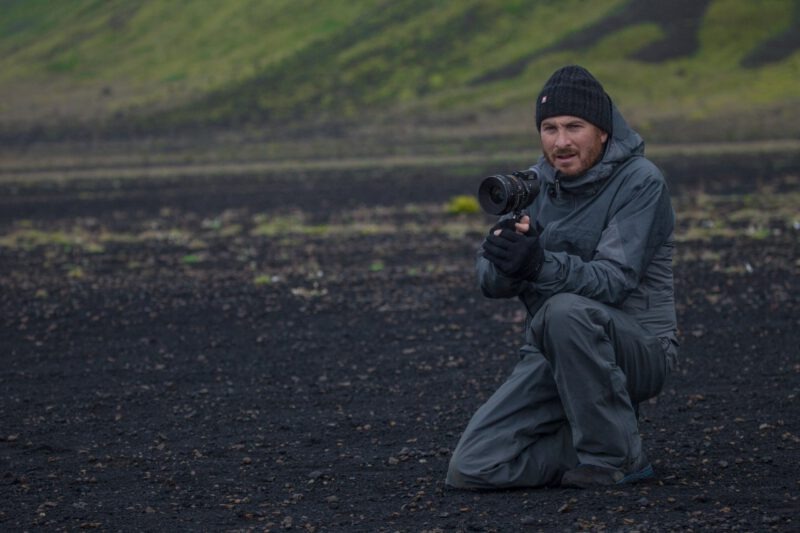Award-winning Darren Aronofksy has an impressive back catalog.
In 2010, Aronofsky received a Best Director Academy Award nomination for the indie box office phenomenon Black Swan, starring Natalie Portman, who won a Best Actress Academy Award for her performance.
2008’s The Wrestler was touted as a “bravura work of art” by Entertainment Weekly and “a film of authentic beauty and commanding consequence” by the Wall Street Journal. The film won Golden Globes for actor Mickey Rourke and singer/songwriter Bruce Springsteen. Aronofsky won the Golden Lion for the best film at the Venice Film Festival. He was the third American director to win that award in the oldest film festival in the world.
As a producer under his Protozoa label, Aronofsky has been responsible for Jackie, which garnered three Academy Awards; the documentary Some Kind of Heaven, which premiered at the 2020 Sundance Film Festival; artist Prune Nourry’s docu-memoir Serendipity, which made its world premiere at the 2019 Berlin Film Festival; Pacified which won the Golden Shell top prize at the San Sebastian Film Festival; Catch the Fair One, which premiered at the 2021 Tribeca Film Festival and won the Audience Award; and the documentary feature The Territory, which premiered at the 2022 Sundance Film Festival and won both the Audience Award and Special Jury Award for Craft in the World Cinema Documentary category.
In 2021, he executive produced the six-part National Geographic docuseries Welcome to Earth, starring
Will Smith as he explores some of the planet’s most intriguing and inaccessible corners. In 2018, Aronofsky executive produced the Emmy-nominated National Geographic series One Strange Rock and the virtual reality experience SPHERES: Songs of Spacetime.
The VR experience, featuring the voices of Jessica Chastain and Patti Smith, closed a record-breaking deal out of Sundance and won the Golden Lion as well. Aronofsky’s newest docuseries stars none other than Thor himself — Chris Hemsworth.
In Limitless with Chris Hemsworth, the actor undergoes six challenges that push his mind and body to the limit and beyond in an attempt to unlock the key to longevity.
Hemsworth had to master stress, overcome strength barriers, and teach his body to handle shock over the course of the series. The most intriguing challenge for Aronofsky, however, was the sixth and final one, where Hemsworth had to face his inevitable mortality in an episode aptly named “Acceptance.”
While Hemsworth may play an immortal god in the Marvel cinematic universe, he is, in reality, a very mortal human who happens to be an actor. Worlds collided in the making of the series as Aronofsky brought the Australian named 2014’s “Sexiest Man” by People back down to Earth.
Innovation & Tech Today recently discussed the new series, life philosophy, and movie-making with Aronofsky.
Innovation & Tech Today: What prompted you to create Limitless with Chris Hemsworth?
Darren Aronofsky: I became friends with Dr. Peter Attia (one of the experts on the series) a long time ago. He is a world-renowned expert in longevity science and we just became friends. We probably connected because I made a film called The Fountain Back in 2006, which is about longevity in some ways.
I was interested in the subject because when I made The Fountain back in the day, really longevity science didn’t really exist. It was truly in the realm of science fiction. But then I’ve noticed over the years how it’s become something super respected with lots of resources from the baby boomer and Gen X generation.
I felt that, “Hey, it would be really interesting to bring to Nat Geo a show on longevity science.”
So that began the pitch and the idea and Nat Geo very quickly understood how it was interesting. Then together with Utopia Production Company out of the UK, we decided to move forward with it.
I&T Today: It seems like you get into mind, body, and soul a little bit in this show. Is that something that you consciously wanted to bring to the table right away? Because when you talk about longevity, the last episode was Acceptance, right?
DA: Yeah. That was the hardest one to make and I’d say everyone but me was very skeptical about that. But really the entire reason I did it was for that last episode.
I guess the first five episodes are really about mind and body. There are practical things to do right now at this moment that can help you live better and longer. But it turns out that coming to terms with your death and a form of acceptance can actually help with your longevity, would actually help you live longer, and there’s real science to that.
So for the last episode, I really wanted to dive into that and do it in a way that was extremely unexpected and a lot of fun. Ultimately, to me, it is emotionally the most entertaining of all the episodes.
I&T Today: You bring a lot of philosophical and metaphysical themes to your projects. Are you searching for your own ontological answers and working them out through your films and this series? You said you were excited about that episode in particular. Is that something that you were maybe wrestling with yourself and you’re finding the answers as you go on this project?
DA: Yeah, I’ve been circling these ideas or wrestling with them and thinking about them my entire life. I think they’re the big ideas of “Why are we here? What are we supposed to be doing? What is life, what is death?” They’re just ideas I remember thinking about as a teenager and I guess I’m still thinking about it.
I&T Today: After all of this research that you’ve done and diving into the big questions, what is your philosophy of life now?
DA: I think curiosity is super important to me. Over my life, I’ve learned that the youngest old people in the world are the most curious. Personally, I think that’s one of the biggest secrets to longevity is curiosity. It’s something I try to harness.Check out the full interview in the upcoming issue of Innovation & Tech Today. Subscribe here.











